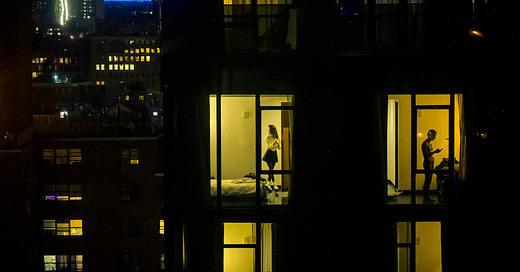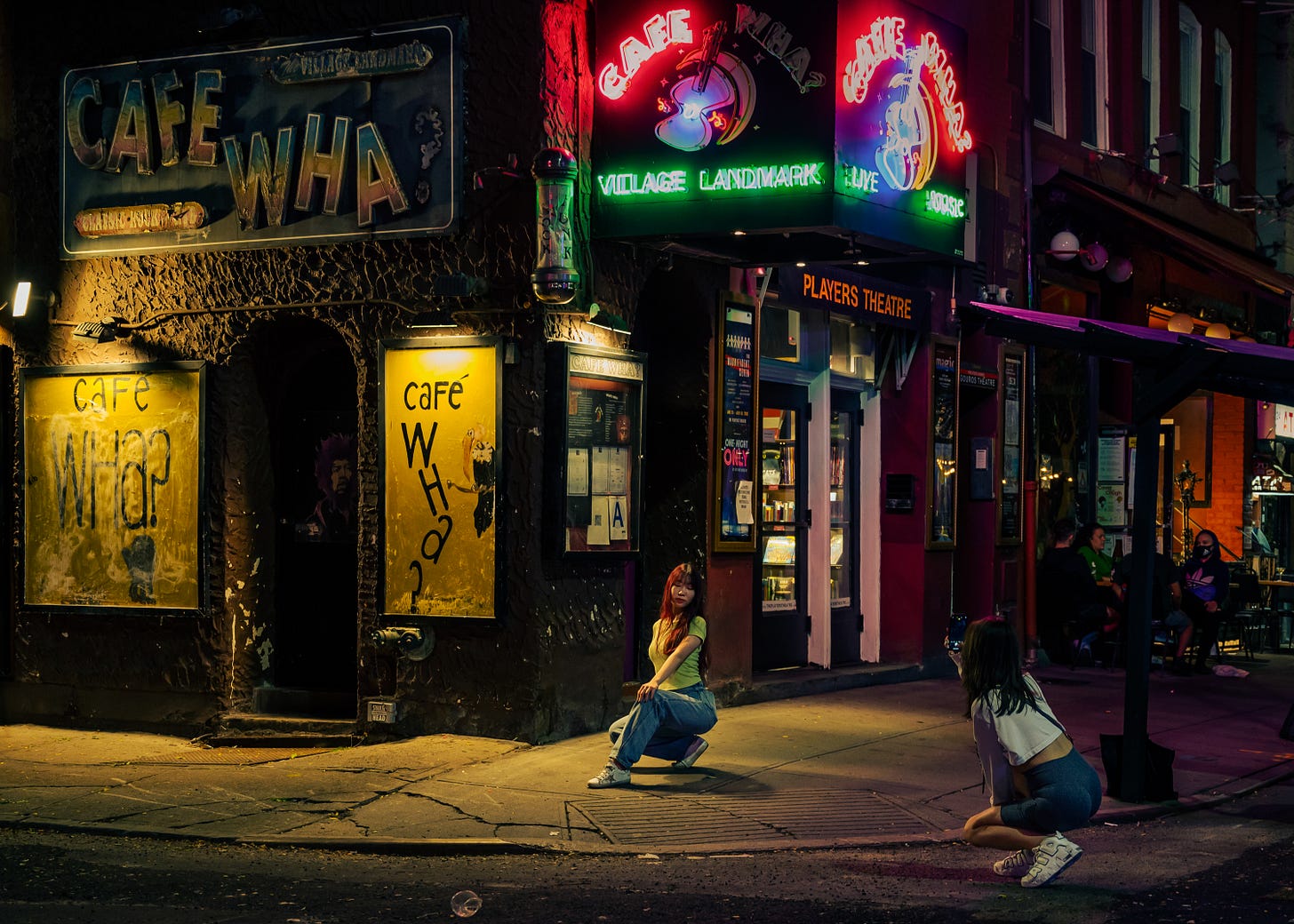Laws, Ethics & Consent in Street Photography — Photographing Strangers, Part 2
Tackling the legal and ethical minefield of street photography (and 30% off Holiday offer for paid subscriptions)
Welcome to In the Flash, a weekly, behind-the-lens dialogue on photography. To join the conversation
I often photograph strangers who are clearly visible through their lit window in New York City after dark. Whenever I post such an image, I invariably get a few comments telling me what I am doing is both illegal and immoral and that such photos should have the subject’s consent. While addressing the legality of street photography is easy, the morality and consent issues are where things get blurry. So, let's start with the easy part before we brave the ethical abyss of street photography.
If you’ve taken photos in public, you’ve likely come across a person who claims they cannot be photographed because the photographer needs their consent. In many cases, they’ll demand that you delete their photo. This can come across as a request or an intimidating threat. If the subject of the photo is a child, the photographer may have to face an angry parent who tries to call the cops, insisting that it's illegal to take photos of children. In such high-strung situations, it's essential to know the photographer's rights. Whether or not the photographer should delete the disputed photo is a personal choice vs. a legal obligation or an action done out of fear.
Here is why.





